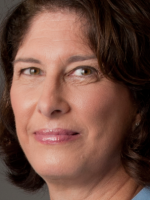Barack Obama's presidency has been marked by big international speeches on America's relationship to the Muslim world in Cairo, on multilateral diplomacy at the United Nations and on nuclear nonproliferation in Prague.
On Thursday morning, Obama will give another one in Oslo, Norway, when he accepts the Nobel Peace Prize. He won the Nobel prize in part because of his speeches: The Nobel Committee cited his work, but also his words on climate change, nuclear weapons and diplomacy.
Anatomy Of A Speech
Those speeches are crafted in a tiny, low-ceilinged room in the basement of the West Wing, directly underneath the Oval Office, by national security aide Ben Rhodes.
Rhodes says it is easy to channel the thoughts of this president, who is an accomplished writer himself and who developed his voice in his memoir Dreams from My Father.
"There are actually instances where we've lifted whole passages of that book or Audacity of Hope in speeches," he says. "There's a line toward the end of [the] Cairo [speech] where he talks about the pulse of humanity that is literally just a beautiful line that I noticed at the end of Dreams from My Father, and I just used it to end the Cairo speech."
Obama said: "This truth transcends nations and peoples — a belief that isn't new; that isn't black or white or brown; that isn't Christian or Muslim or Jew. It's a belief that pulsed in the cradle of civilization."
Rhodes says each big speech begins with the president himself laying out his thoughts in outline form. Then Rhodes starts writing, and the president starts editing.
"The first draft of the Cairo speech that he got was so covered in ink marks that it was almost unrecognizable to anybody except me and him," he says. "Cause he wrote in the margins, he wrote on the backs of pages, he'll write paragraphs that he wants inserted on additional pages that he'll staple to the text. But slowly, through each draft, there's less and less ink on the paper."
In all the international speeches — in Cairo, Prague or at the United Nations — Rhodes says there's a consistent worldview.
"I think there is a theme and a thread that runs through all of these speeches," he says. "And you could boil it down to mutual interests and mutual respect."
The Afghanistan Speech: Not Typical
Republicans bristle when, in speeches, Obama points out past transgressions of the U.S. in an effort to improve relations with the rest of the world.

"The overall rhetorical approach that Obama takes in these speeches is to identify the problems and challenges of the world, the failures of pre-Obama America — and then present himself as the transcendent healer to solve these problems," says Michael Gerson, a former speechwriter for George W. Bush. "Now, he goes on to criticize reflexive anti-Americanism. But the effect of all this is to elevate himself as an arbiter in these debates, rather than engaging in them on one side. And I think that's very new in the history of presidential rhetoric."
That might have been true in aspirational foreign policy speeches, where the president calls for a bridge between Arabs and Jews, or the end to nuclear weapons. But last week in West Point, he gave a very different kind of speech committing 30,000 new troops to Afghanistan.
Gerson says he was surprised at the tone, because it was not a typical Obama "on-the-one-hand, on-the-other-hand" speech.
"The ending of that speech really was a firm assertion of America's unique role in the world in a way that would've been familiar from Franklin Roosevelt or Harry Truman or John Kennedy, or other great Democratic orators," he says.
Gerson and many others believe the Afghanistan speech and the Afghanistan policy marked a new phase in the Obama presidency.
"On Afghanistan, it was not a split-the-difference decision. And going into his Nobel Prize speech and moving forward — you know — he has been forced to take one side of a very controversial issue that will help to dominate his presidency," he says.
'A Special Burden'
According to Rhodes, the president will keep talking about American exceptionalism and leadership.
"We do have a special burden," he says. "And it's one that we don't take lightly. And I think the president will have the opportunity to talk about that in Oslo."
The Nobel speech is full of land mines for Obama — he's a war president picking up a peace prize just days after committing tens of thousands of troops to battle. And it's a prize that two-thirds of Americans don't think he deserves — a view he himself agrees with.
To make it even more awkward, he'll be lauded at a glittering white-tie dinner by Europe's elite — including the king and queen of Norway — while back home, Americans are losing their jobs and their homes.
White House aides say Obama will acknowledge all that and try to avoid feeding his critics' charge that he is a global celebrity. And they say there's even something about this problematic award that could help him: For the first time before an international address, expectations are actually low.
Copyright 2022 NPR. To see more, visit https://www.npr.org. 9(MDAzMjM2NDYzMDEyMzc1Njk5NjAxNzY3OQ001))







